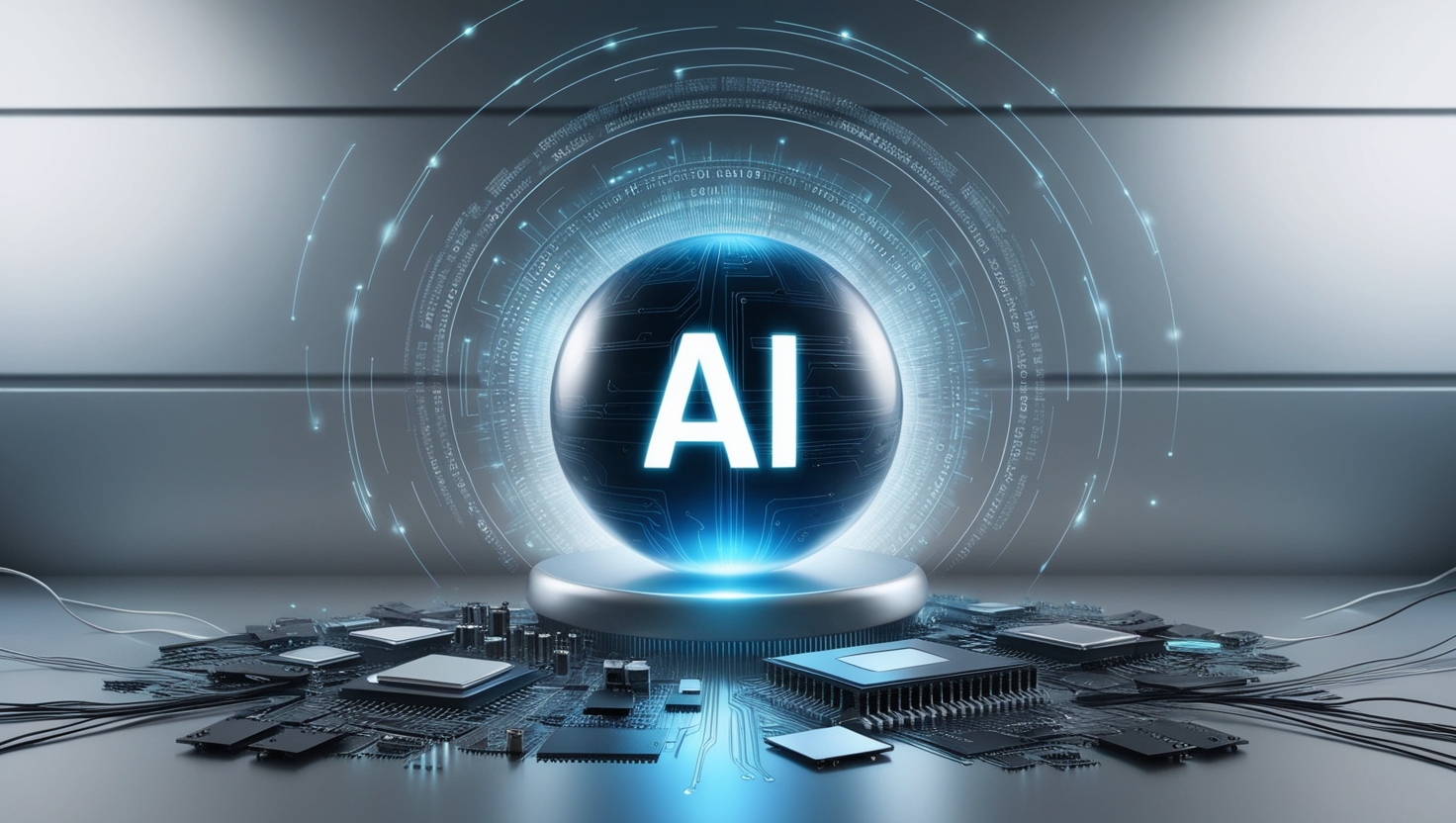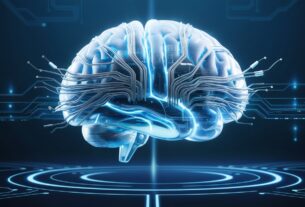Introduction
In recent years, artificial intelligence (AI) has evolved from a futuristic concept into an essential part of our daily lives. It influences nearly every industry, from healthcare and finance to education and entertainment. As AI continues to advance at an unprecedented pace, understanding and learning about it has become more than just an advantage—it is now a necessity. This article explores the reasons why learning AI is crucial in today’s world, the benefits it offers, and how individuals and businesses can leverage AI to stay competitive and innovative.
The Ubiquity of AI in Everyday Life
Artificial intelligence is no longer confined to research labs or high-tech corporations; it has permeated every aspect of human life. Virtual assistants like Siri and Alexa, recommendation algorithms on Netflix and Spotify, and even smart home devices rely on AI to function. Social media platforms use AI to personalize content, detect fake news, and enhance user experiences. In healthcare, AI is used to analyze medical images, predict disease outbreaks, and develop personalized treatments. Given its omnipresence, understanding AI is becoming as fundamental as learning how to use the internet.
The Growing Demand for AI Skills in the Job Market
The job market is evolving rapidly, and AI-related skills are in high demand. According to a report by the World Economic Forum, AI and machine learning specialists are among the top emerging job roles. Businesses are integrating AI to improve efficiency, automate tasks, and make data-driven decisions, leading to an increased need for professionals who understand how AI works. Learning AI not only enhances employability but also provides job security in an era where automation is replacing traditional roles. Companies across various sectors seek AI experts to optimize processes, develop new technologies, and drive innovation.

AI as a Tool for Innovation and Problem-Solving
AI is revolutionizing industries by offering innovative solutions to complex problems. For instance, in the field of medicine, AI-driven algorithms assist in diagnosing diseases more accurately and at an earlier stage. In finance, AI helps detect fraudulent transactions and assess credit risks. Learning AI equips individuals with the ability to create intelligent solutions that improve efficiency, reduce costs, and enhance decision-making. It fosters creativity, enabling businesses and individuals to build smarter applications, automate mundane tasks, and develop breakthrough innovations.
The Ethical and Societal Implications of AI
As AI continues to evolve, ethical considerations have become a critical aspect of its development and implementation. Issues such as bias in AI models, data privacy concerns, and job displacement due to automation require thoughtful discussion and regulation. By learning AI, individuals can contribute to the responsible development of AI technologies, ensuring they are used ethically and equitably. Understanding AI also empowers people to make informed decisions about policies, regulations, and the impact of AI on society.
AI and the Future of Education
Education is undergoing a transformation due to AI-driven innovations. Intelligent tutoring systems, personalized learning experiences, and AI-powered educational tools are reshaping how students acquire knowledge. Learning AI not only benefits those pursuing careers in technology but also educators and students who seek to enhance their learning experiences. AI helps create customized learning paths, identify students’ strengths and weaknesses, and provide real-time feedback. As AI becomes more integrated into education, understanding its mechanisms will become essential for both teachers and students.
AI’s Role in Entrepreneurship and Business Growth
Entrepreneurs and business leaders who understand AI can leverage its power to drive growth and stay ahead of the competition. AI can optimize marketing strategies, improve customer experiences, and streamline operations. Startups are utilizing AI to develop innovative products and services, disrupting traditional industries. Business owners who invest in AI knowledge can harness data analytics, automate repetitive tasks, and create intelligent business models. Learning AI provides a competitive edge, enabling businesses to adapt to changing market demands and enhance productivity.
How to Get Started with AI Learning
Learning AI may seem daunting at first, but with the right resources and mindset, anyone can grasp its fundamentals. Online courses, tutorials, and AI-focused degree programs offer accessible ways to learn AI. Platforms like Coursera, Udacity, and edX provide comprehensive AI courses taught by industry experts. Hands-on experience with programming languages like Python, machine learning libraries, and AI development frameworks is essential for practical understanding. Engaging in AI projects, participating in hackathons, and joining AI communities further enhance learning and skill development.
The Democratization of AI Knowledge
The accessibility of AI education is increasing, making it possible for individuals from diverse backgrounds to learn and apply AI concepts. Open-source AI tools, community-driven learning platforms, and free educational resources are empowering more people to explore AI. Governments and organizations are investing in AI literacy programs to bridge the knowledge gap and prepare the workforce for an AI-driven future. As AI becomes more democratized, learning it is no longer restricted to specialists; it is a skill that benefits individuals across various professions and disciplines.
Conclusion
Artificial intelligence is shaping the present and defining the future. Its impact spans across industries, education, ethics, and daily life. Learning AI is no longer optional but essential for staying relevant in a rapidly evolving world. Whether for career advancement, business growth, or societal impact, AI knowledge empowers individuals to harness its potential responsibly and innovatively. As AI continues to evolve, those who invest in learning it will not only secure their future but also contribute to shaping a more intelligent and equitable world.
FAQ: Understanding and Learning Artificial Intelligence (AI)
1. What is Artificial Intelligence (AI)? AI refers to the simulation of human intelligence in machines that can perform tasks such as learning, reasoning, problem-solving, perception, and language understanding. AI is used in various applications, including virtual assistants, recommendation systems, and self-driving cars.
2. Why is learning AI important? Learning AI is essential because it is becoming a fundamental part of modern life, influencing industries such as healthcare, finance, education, and entertainment. Understanding AI enhances employability, enables innovation, and prepares individuals for the future job market.
3. How is AI used in everyday life? AI is present in many aspects of daily life, such as:
- Virtual assistants (e.g., Siri, Alexa, Google Assistant)
- Recommendation algorithms on platforms like Netflix and Spotify
- Smart home devices
- Social media content personalization
- Healthcare applications, such as medical image analysis and personalized treatments
4. What careers benefit from AI knowledge? Many careers benefit from AI expertise, including:
- Data Scientists
- AI and Machine Learning Engineers
- Software Developers
- Healthcare Professionals
- Financial Analysts
- Educators and Researchers
- Business Leaders and Entrepreneurs
5. How does AI impact the job market? AI is creating new job opportunities while also automating certain tasks. Professionals with AI skills are in high demand, as businesses seek to integrate AI to improve efficiency and decision-making. Learning AI enhances job security and career prospects.
6. How can AI be used for innovation and problem-solving? AI enables innovation by providing intelligent solutions to complex challenges. For example:
- AI in medicine helps diagnose diseases and predict outbreaks.
- AI in finance detects fraudulent transactions.
- AI in business automates tasks and optimizes processes.
- AI fosters creativity by enhancing product design and decision-making.
7. What are the ethical concerns related to AI? Ethical considerations in AI include:
- Bias in AI models
- Data privacy concerns
- Job displacement due to automation
- The need for responsible AI development and regulation Understanding AI helps individuals contribute to ethical AI use and policymaking.
8. How is AI transforming education? AI is reshaping education through:
- Intelligent tutoring systems
- Personalized learning experiences
- AI-powered educational tools that identify student strengths and weaknesses
- Automated grading and real-time feedback Learning AI is beneficial for educators and students seeking to enhance their learning experiences.
9. How can AI help entrepreneurs and businesses? Businesses leverage AI for:
- Optimizing marketing strategies
- Improving customer experiences
- Streamlining operations
- Developing innovative products and services Entrepreneurs who understand AI can gain a competitive edge in the market.
10. How can I start learning AI? To start learning AI:
- Take online courses on platforms like Coursera, Udacity, and edX.
- Learn programming languages such as Python.
- Explore AI and machine learning libraries (e.g., TensorFlow, PyTorch).
- Participate in AI projects, hackathons, and online communities.
- Stay updated with AI research and industry trends.
11. Is AI knowledge accessible to everyone? Yes! AI education is becoming more accessible through:
- Open-source AI tools
- Free educational resources
- Community-driven learning platforms
- Government and organizational AI literacy programs AI learning is no longer limited to specialists—it benefits professionals across various fields.
12. What is the future of AI? AI is continuously evolving and will play a crucial role in shaping the future. From advancing healthcare and automation to ethical considerations and regulation, AI will influence many aspects of life. Those who invest in learning AI will contribute to responsible innovation and secure their place in an AI-driven world.
Conclusion AI is transforming industries, education, and everyday life. Learning AI is no longer optional but essential for career growth, business success, and societal progress. Investing in AI knowledge empowers individuals to harness its potential responsibly and drive innovation in a rapidly changing world.
Read also:




